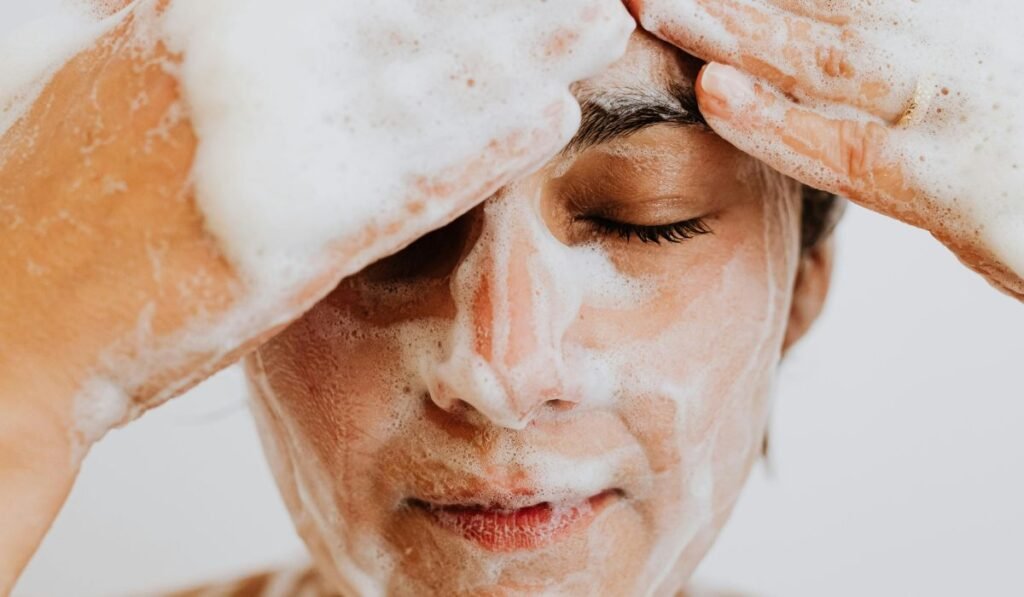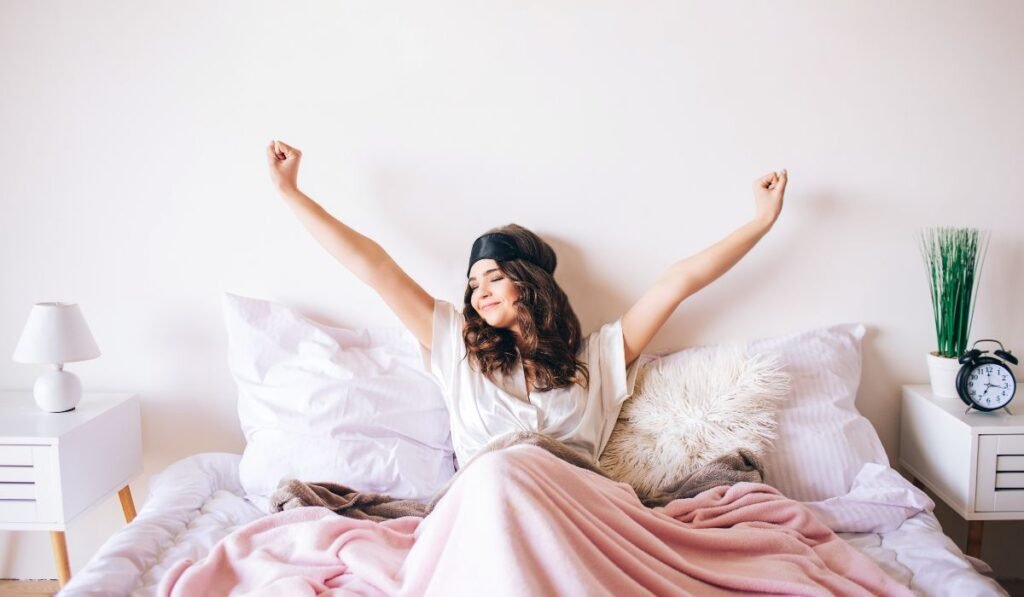Ever noticed how your morning bath sometimes leaves you fresh, but other times you just feel… meh?
Turns out, there is a right way to bathe — and most of us have been missing it for years.
In our rush to get ready for work, we turn it into a chore — quick rinse, shampoo, out. But bathing, in its true sense, was never meant to be just about cleaning the body. In Ayurveda, a bath (Snana) is a daily act of rejuvenation — a moment to reset your mind, cool the nerves, and activate your senses for the day ahead.
🕉️ Step 1: The Intention (And It’s Not Just Hygiene)
Before you switch on the shower, pause. Ayurveda calls bathing a sattvic ritual — meant to bring clarity and calmness.
So, instead of rushing in half-asleep, take 10 seconds to breathe and set a small intention — something like “Today I’ll move with ease” or “I’ll be kind to my body.”
Sounds too simple? Try it once. That tiny pause changes how you treat yourself during the next ten minutes.
🌸 Step 2: Pre-Bath — The Secret Oil Ritual
This one’s a game-changer. Abhyanga, the practice of oiling the body before a bath, is something our elders did instinctively.
Warm a little coconut or sesame oil, and massage it into your skin — circular motions on joints, straight strokes on limbs.
You don’t need a spa setup — even 5 minutes is enough.
Benefits?
- Reduces dryness and early wrinkles
- Improves blood circulation
- Calms anxiety and fatigue
- Adds a soft glow to your skin
Pro tip: If you’re short on time, just oil your feet, neck, and ears. It still helps balance the nervous system.
🌿 Step 3: The Right Water Temperature
If there’s one thing your grandmother was right about — it’s this.
Warm water feels comforting, but too hot can dry your skin and increase pitta (the body’s heat energy). Ayurveda suggests:
- Warm water for the body — it relaxes muscles, improves blood flow.
- Cool water for the head — it keeps the mind calm and protects hair roots.
So, skip the steaming shower. Lukewarm is your sweet spot.
💡 Quick test: If your skin turns red, water’s too hot.
🍃 Step 4: Choose What You Bathe With (It Matters More Than You Think)
Most commercial soaps strip your skin’s natural oils. Instead, try simple alternatives —
- Gram flour (besan) mixed with turmeric and milk for glowing skin
- Multani mitti paste for oily skin
- Sandalwood or neem paste for acne-prone skin
If you prefer body washes, look for sulphate-free and paraben-free options. The idea is: clean, not chemical.
And yes, you can skip soap once or twice a week — especially if you’ve oiled your body. That’s what traditional Indian bathing used to be — cleansing through balance, not bubbles.
🌤️ Step 5: Post-Bath Care — Don’t Shock Your Body
Here’s what we often get wrong: stepping out of a hot shower into freezing air. Ayurveda says that sudden temperature change disturbs your doshas (body energies).
Instead, pat yourself dry — don’t rub — and let your skin stay slightly moist. Apply a few drops of oil or aloe gel before dressing up.
Drink a glass of warm water (or even better, cumin-seed water). It helps regulate your body’s temperature and digestion after bathing.
🌞Time of the Bath
Morning is ideal — it energizes you and clears mental fog.
But if your job demands late nights, a quick lukewarm bath before bed also works — it cools down your system, especially in summer.
Avoid bathing right after meals — your digestion gets affected. Wait at least 30–45 minutes.
💫 The Emotional Reset
Bathing isn’t just about removing dirt — it’s also symbolic of letting go. Ayurveda says, Snana removes both physical and emotional impurities.
So, think of your bath as a daily mental cleanse.
Let the water carry away your fatigue, your overthinking, your small frustrations.
Because honestly, that’s what it was meant for.
The Modern Twist — How to Make It Work in Real Life
Not everyone has 30 minutes to do oil massages and herbal scrubs every day. But small tweaks make a big difference.
Here’s how you can adapt it to a modern, busy schedule:
- Night before: Keep your towel, clothes, and oil ready. (Half the battle is mental prep.)
- Morning: Warm your oil while brushing your teeth.
- In the shower: Apply oil fast, let it sit 2–3 minutes, rinse with lukewarm water.
- After bath: Sip warm water and apply light moisturizer.
That’s it — 10 minutes, and you’ve turned a rushed shower into a grounding ritual.
🧴 Bonus: What Not to Do While Bathing
- Don’t wash hair daily — it weakens roots.
- Don’t pour cold water on your head after a hot shower.
- Don’t scrub too hard — your skin isn’t a floor tile.
- Don’t use random “whitening” soaps — they do more harm than good.
🛁 FAQs on the Right Way to Bathe (Ayurvedic Way)
1. Is there really a “right way” to take a bath according to Ayurveda?
Yes, absolutely. Ayurveda treats bathing (Snana) as a daily ritual for energy and clarity — not just hygiene. When done right, it refreshes your body, balances your doshas, and calms your mind. It’s less about scrubbing hard and more about bathing mindfully.
2. Should I use hot or cold water for bathing?
Ayurveda suggests warm water for the body — it relaxes muscles and improves circulation — and cool water for the head to protect hair roots and keep the mind cool. If your skin turns red or feels dry, the water is too hot. Lukewarm is the perfect middle ground.
3. What is Abhyanga, and why should I oil my body before a bath?
Abhyanga is an ancient Ayurvedic practice of massaging warm oil (like coconut or sesame) into the skin before bathing. It improves blood flow, reduces stress, prevents dryness, and gives your skin a natural glow. Even a quick 5-minute oil massage makes a big difference.
4. Can I skip soap every day? What’s the Ayurvedic alternative?
Yes, you can skip chemical soaps sometimes! Ayurveda recommends natural cleansers like gram flour (besan) with turmeric and milk, multani mitti, or sandalwood paste. These clean gently, protect your skin’s oils, and work better in the long run.
5. When is the best time to take a bath — morning or night?
Morning baths are ideal because they wake up your senses, clear drowsiness, and set a positive tone for the day. But if you work late or feel overheated, a lukewarm night bath can calm your body and help you sleep better. Just avoid bathing right after meals.
6. Why does Ayurveda say bathing affects mood and energy?
Because water isn’t just physical — it’s energetic. A mindful bath helps release mental fatigue, anxiety, and negative emotions. Ayurveda believes bathing purifies both body and mind — leaving you grounded, lighter, and emotionally reset for the day.
☀️ In the End
We chase wellness through products and retreats, but maybe the real healing begins with something as simple as water.
The right way to bathe isn’t complicated — it’s just mindful, consistent, and respectful of what your body needs.
Because how you start your morning decides how your day — and sometimes your mood — unfolds.
Komal Palesha is a passionate writer and eco‑enthusiast dedicated to inspiring mindful, sustainable living. She loves exploring natural health remedies, green habits, and easy lifestyle tweaks that help balance body, mind, and planet. Komal believes that small, consistent changes can lead to big transformations — and she’s on a mission to help readers live smarter and greener, one post at a time.




